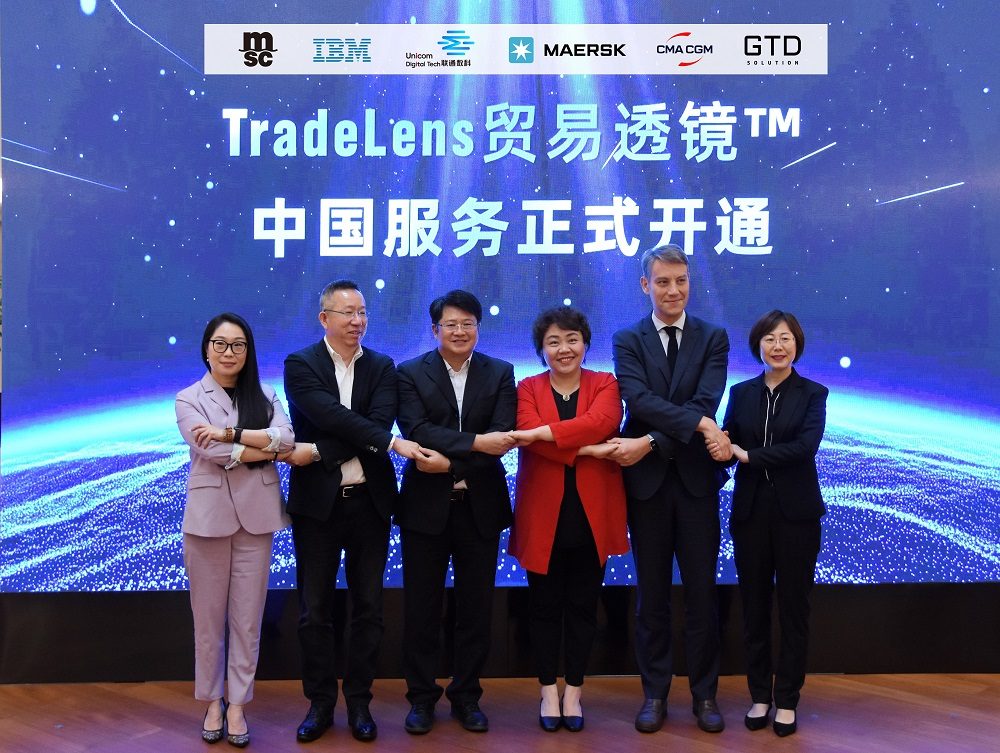Maersk and IBM’s Tradelens container shipping data platform expands in China
Blockchain-based network supports digitalized operations even as global container flows remain crimped by Covid-19 outbreak at Yantian port.

The blockchain-enabled digital shipping platform Tradelens is quickly adding new members in China, three years after it was jointly developed by Maersk Line and IBM Corp. as a way to improve data transparency across the global container logistics trade.
More than 10 new members have joined the digital ecosystem within a month of its launch for general availability in China, including several Chinese companies, two port groups, and eight intermodal and inland logistics providers.
In addition to participation by its developers, A.P. Moller - Maersk and IBM, the platform also includes the major ocean carriers CMA CGM and MSC (Mediterranean Shipping Co.). The entire TradeLens ecosystem now includes integrations with more than 300 organizations – extending to more than 10 ocean carriers and 600 ports and terminals.
Through the platform, members gain access to end-to-end container transportation visibility, collaboration channels with logistics and trading partners, and the ability to share documents such as electronic Bills of Lading on the blockchain. Those steps are intended to modernize manual and paper-based documents, replacing them with blockchain-enabled digital solutions, its founders say.
“Connecting to the TradeLens platform is an important opportunity for Xiamen Port to expand our information service capabilities,” Zhaohui Chen, vice general manager of new member Xiamen Port Holding Group, said in a release. “Ports play pivotal role in area logistics. By integrating with TradeLens, it will allow us to improve operational efficiency and empower each other to support supply chain participants domestically and abroad to enhance the control of logistics dynamics. We will make our efforts to facilitate a smooth industrial and supply chain flow.”
The expansion of members in the platform comes as global container flows are being disrupted by the partial closure of China's Yantian port, which has been running at just 45% of its productivity for weeks as it struggles to contain a Covid-19 outbreak.
That rate was expected to rise to 75% of its full capacity today, but much damage has already been done, since the shutdown and resulting backlog have triggered regional congestion as carriers seek alternatives, according to Judah Levine, research lead with logistics technology platform provider Freightos. Those delays are also limiting capacity and pumping container rates up to sky-high levels. Maritime freight rates from Asia to both U.S. coasts are now at least triple their pandemic-inflated levels from last June, Freightos said.
“The impact of the outbreak at Yantian will be amplified because the industry as a whole is already operating at a deficit – just as it was when the Suez was blocked – with no extra capacity to throw at new problems,” Levine said in a statement. “For example, Freightos.com marketplace data show ocean shipments now arriving from China to the United States took 42% longer than last June and this will probably get worse before it gets better.”
Related Articles
Copyright ©2024. All Rights ReservedDesign, CMS, Hosting & Web Development :: ePublishing